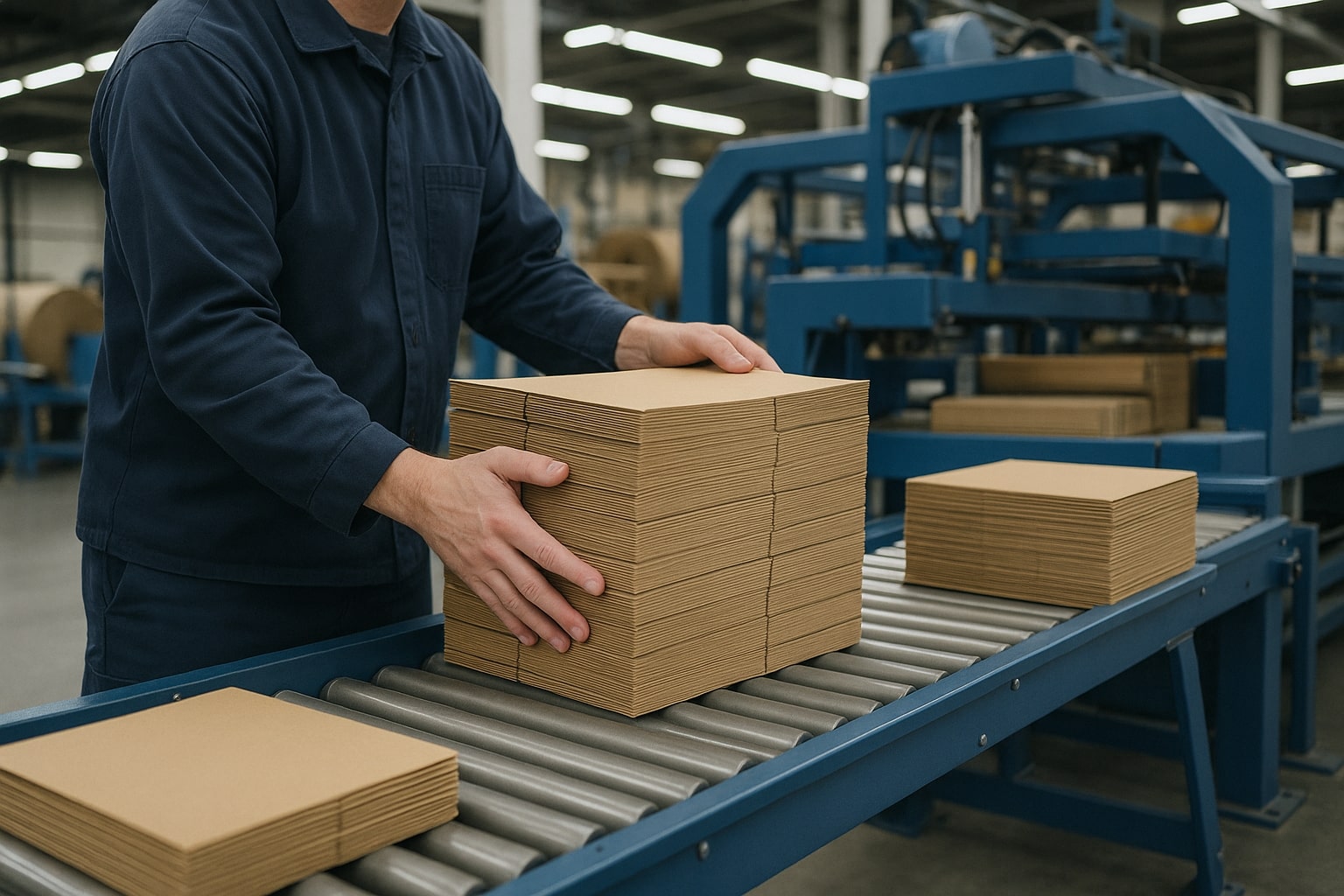Sustainable Alternatives to Manila Paper: Eco-Friendly Options for Industry
When people ask about eco-friendly manila paper, what they usually mean is a strong, durable stock that performs like traditional manila – but without the heavy environmental cost. Limehouse Board Mills can supply a wide range of sustainable board alternatives that serve the same roles in packaging, stationery and industry.
Traditional manila paper depends heavily on virgin wood pulp. By choosing recycled and tree-free boards instead, industries can maintain the same durability and finish while cutting waste, energy, and emissions.

Why Manila Paper Needs Greener Alternatives
Manila paper is typically made from virgin wood pulp and sometimes abacá, giving it that familiar stiffness and buff tone. The problem is its production relies on fresh fibres and high chemical use. That’s why so many companies are now looking for sustainable manila paper alternatives, materials that perform just as well but are made from recycled or renewable sources.
Recycled Boards as Direct Manila Alternatives
A simple and effective swap for manila is recycled solid board. High post-consumer content boards match manila’s stiffness and colour while using far less virgin pulp.
- Recycled content: Boards made with 70-100% post-consumer waste help conserve resources.
- Natural tone: Many recycled options retain a buff or kraft shade similar to manila.
- Certifications: Look for FSC® Recycled or PEFC™ to ensure sustainable sourcing.
These boards can be converted and finished in the same way as manila – ideal for tags, folders, and packaging where strength and colour matter.
Examples of suitable materials from the Limehouse range include:
- Brown Dyed Board – ideal for envelopes, cartons, and craft work.
- Kraft Lined Greyboard – great for rigid boxes and packaging.
- Pure Kraft – natural fibre appearance, excellent for industrial and craft applications.
Next-Generation Tree-Free Alternatives
Beyond recycled boards, there’s rapid growth in tree-free fibres that make powerful substitutes for manila. These boards are made from agricultural by-products or minerals rather than wood.
- Bagasse Board: Made from sugarcane waste after juice extraction. It’s strong, renewable, and compostable.
- Hemp Board: Long, durable fibres and rapid crop growth make hemp a low-impact option.
- Straw Board: Uses farm waste like wheat stalks, giving a golden tone similar to manila while reducing agricultural burning.
- Bamboo Board: Fast-growing, renewable, and tough – suitable for packaging and conversion.
- Stone Paper/Board: Made from limestone mixed with resin. It’s durable, waterproof, and tree-free.
While Limehouse Board Mills does not manufacture these materials, we can convert and finish equivalent board types that offer similar benefits.
Industrial Uses for Manila Paper Alternatives
The main uses for manila paper – folders, packaging, stationery – can all be met by our range of sustainable boards.
Here are common applications and the board types that can replace traditional manila:
- Folders and Office Supplies:
White Lined Greyboard or Displayboard work well for files and showcards. - Tags and Cards:
Brown Dyed Board or Pure Kraft provide stiffness and printability. - Packaging and Transit Pads:
Kraft Lined Greyboard or Fibreboard/Millboard offer excellent durability. - Water-Resistant Applications:
PE Paper / Lined Board or Foil-Lined Board provide moisture protection.
Limehouse Board Mills can supply these boards in sheet or reel form, ready for lamination, guillotining, die-cutting or moulding to suit your process.
What to Look For When Buying Eco-Friendly Manila Paper Alternatives
When sourcing alternatives, focus on performance and sustainability together:
- Strength & GSM: Choose boards that meet the same stiffness and bulk as traditional manila.
- End-of-Life Fit: Check whether the material is recyclable, compostable, or suitable for a closed-loop system.
- Sustainability Marks: FSC®, PEFC™, or recycled certifications confirm responsible sourcing.
- Availability: Limehouse offers these boards in sheets or reels, from 100 microns to 5mm, cut to your specification.
We stock and convert a wide range of boards suitable for replacing manila paper, including:
Frequently Asked Questions
Expert customer support
Tell us what you need, and our expert team will work with you to find the perfect solution. If it's made of cardboard then we are the people to speak to!
Tell us what you need, and our expert team will work with you to find the perfect solution. If it’s made of cardboard then we are the people to speak to! Get in touch today to see how we can help.
Bulk Ordering
For businesses large and small.
Eco-Aware Products
Recyclable, compostable, and food-safe.
Built to perform
Packaging that holds up and looks right.